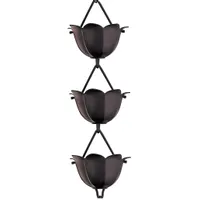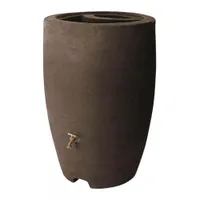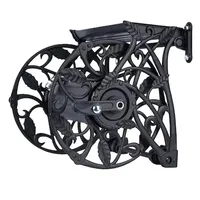You've probably been watering your backyard wrong - this simple expert trick is the answer to healthier plants
Gardening experts have a simple trick for watering your backyard properly and it produces happier plants. You wouldn't want to be shocked by a freezing shower

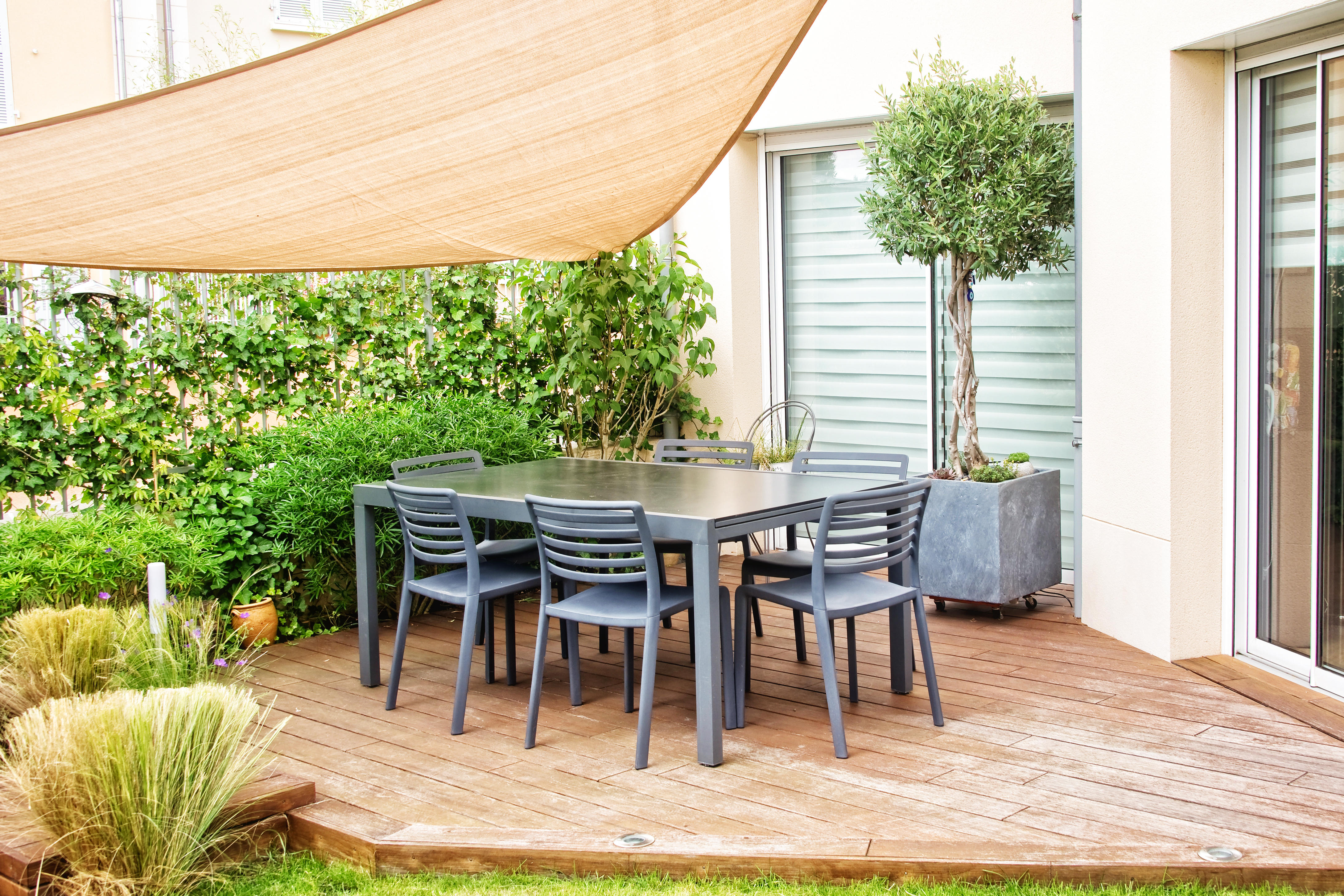
As spring blesses us with longer sunnier days, we're venturing out to our backyards once more. Watering your plants might not be rocket science, but there are some things you ought to be aware of before you turn on the hose and give your plants their first drink of the season - and one of those is the temperature of the water.
Most of us don't think twice about using the hose to water our plants. It's the done thing after all, plus outside faucets exist for a reason, right? Well, one thing we can all agree on is that the water than flows straight from the faucet is cold. (An average of 55 degrees Fahrenheit to be exact, according to research by Scientific American.) Just as you wouldn't want to be shocked by a freezing shower, neither do our plants. That's why professional gardeners recommend using temperate water instead.
Yes, your flowers and shrubs have probably survived just fine until now, but experts say making this simple change could actually be the best way to promote better plant growth in the long term. For a backyard that's flourishing come summer, here's what you need to know.

Richa Kedia is a gardening enthusiast with over 12 years of experience in both indoor and outdoor gardening. She has a deep passion for plants and loves spending time nurturing them. In her spare time, she regularly contributes to gardening blogs and websites, sharing her knowledge and tips with others.
Should you avoid watering plants with cold water?
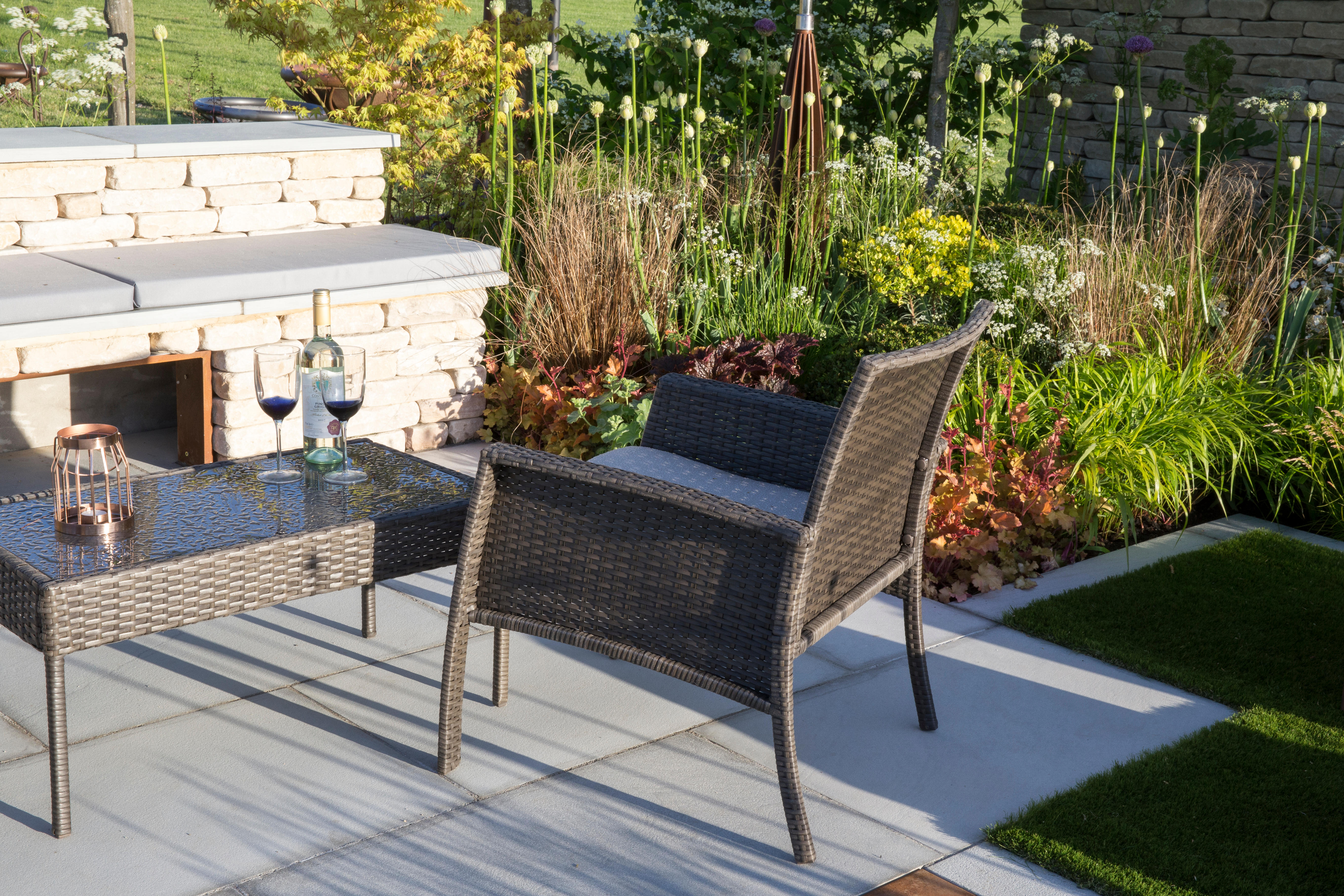
Unless you're one of those rare types who enjoy chilly showers and winter swims, having cold water poured over you isn't fun. The shock is even worse when your body's warm, too. Well, the same goes for plants.
'Just as people can feel a shock to their system when exposed to cold water, plants can also experience a similar shock,' explains Reese L Robins, gardening expert at Just Pure Gardening.
While cold showers are said to have certain health benefits for us, however, the same isn't true for the green friends in our flower beds. 'Watering plants with water that's too cold can cause stunted growth, root damage, and wilting,' says Reese. 'The cold water can shock the roots of the plant, causing them to become less efficient at absorbing nutrients and water which can lead to much slower growth of the plant.'
Each lotus-shaped cup of this cute rain chain spout is crafted with a wide flared mouth to efficiently capture most of the rainwater. Super easy to install, it's a beautiful smart green alternative to replacing traditional gutter downspouts.
What temperature should you water your plants instead?
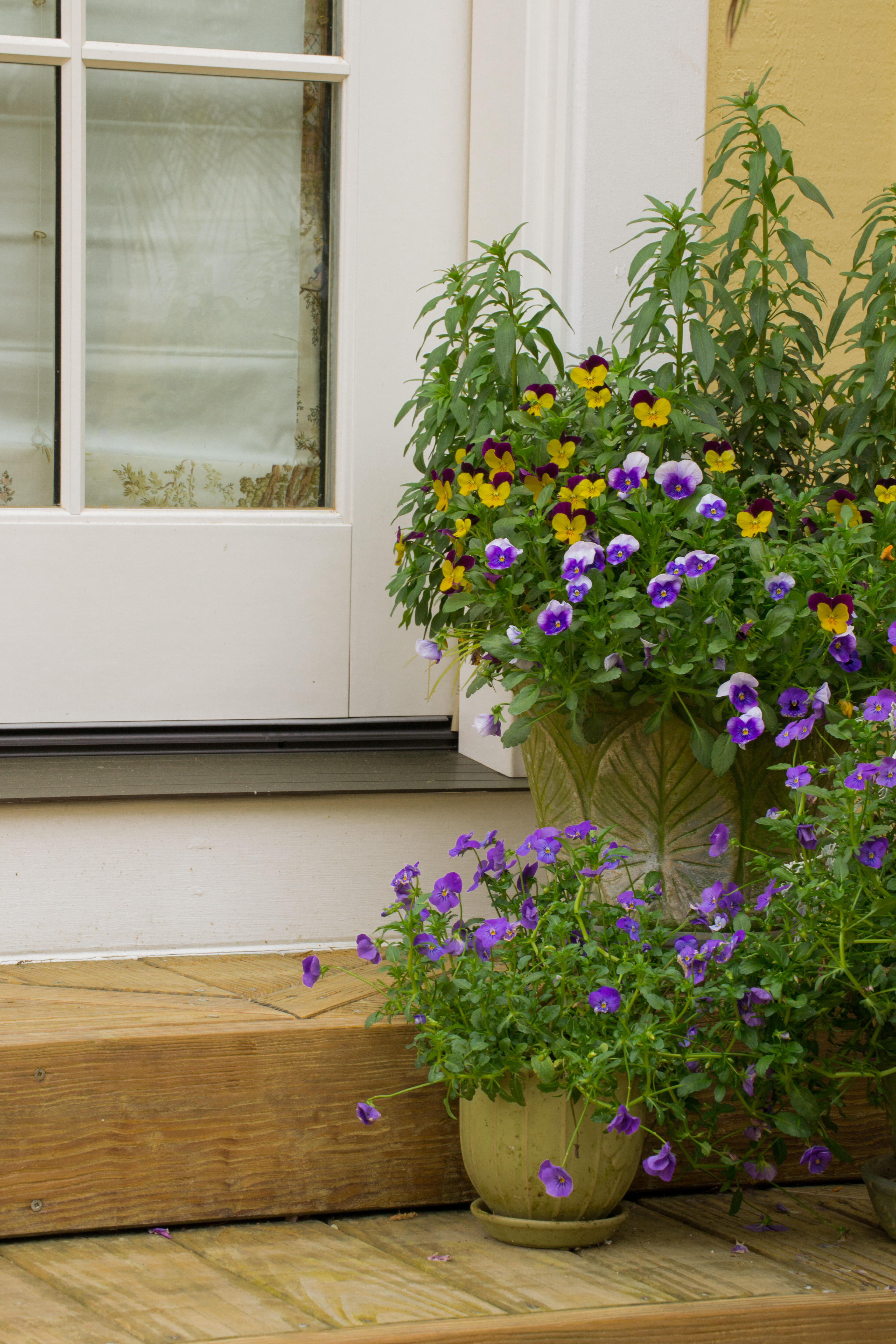
Avoiding cold water sounds simple enough, but how cold is too cold? The water you use in your modern garden should be warmer than it is straight from the faucet, but not exactly 'warm'. It's best to use temperate water, ideally around room temperature (between 65°F to 75°F).
The Livingetc newsletters are your inside source for what’s shaping interiors now - and what’s next. Discover trend forecasts, smart style ideas, and curated shopping inspiration that brings design to life. Subscribe today and stay ahead of the curve.
'This temperature range is close to what plants would experience in nature from rainwater, and it helps to avoid shocking the plant's roots,' says Diana Cox, blogger and gardening expert at The Gardening Talk. 'Most plants prefer water at this temperature, but there are some that prefer warmer water, such as tropical plants.' On the other hand, Diana points out that those originating from colder regions will actually prefer cooler water.
Of course, no one's expecting you to use a thermometer every time you water your plants, and the odd sprinkle of cold water probably won't do your plants any harm. The key is to avoid extremes since sudden changes in temperature are more likely to damage your plants. 'Using water at ambient temperature will maintain a stable environment in the soil and prevent sudden changes that can harm your plants,' notes Reese.
For prime temperature, use rain water instead
Avoiding cold water is all well and good, but if you're used to using the hose you're probably wondering how to get your water to the perfect temperature. The secret might actually be to stop using the hose altogether.
'When it comes to watering plants, rainwater is a good option,' says Reese. 'It's free and has fewer chemicals that can be found in tap water, making it a more natural and beneficial option for plants.' What's more, it's likely to be around the perfect temperature for watering, especially if you collect it in a water barrel like this one, from Target. Another way to irrigate your plants naturally is with a rain chain, a decorative yet functional way to channel rainwater from your gutters to your plants.
That said, Reese also points out that rainwater is typically deficient in plant nutrients, so it is only suitable for plant hydration, not fertilizing. 'Water from a well can be an even better solution for watering plants if you're lucky to have one nearby,' he adds. 'It's often naturally filtered and can contain minerals beneficial for plant growth.'
50 Gallon Rain Water Barrel, Target
This rain water barrel doesn't sacrifice style for function. The 50 gallon container from Target features two overflow ports, a brass spigot with a shut-off nozzle, and a bottom-fitting attachment so you can use every drop of water. The best part? It also doubles as a decorative planter with a realistic brownstone pot look.
3 tips for watering plants
Ideal temperature out of the way, there are still a host of other tips you ought to know if you want the heathiest backyard possible. And some of them may come as a surprise.
1. Water deeply and less frequently
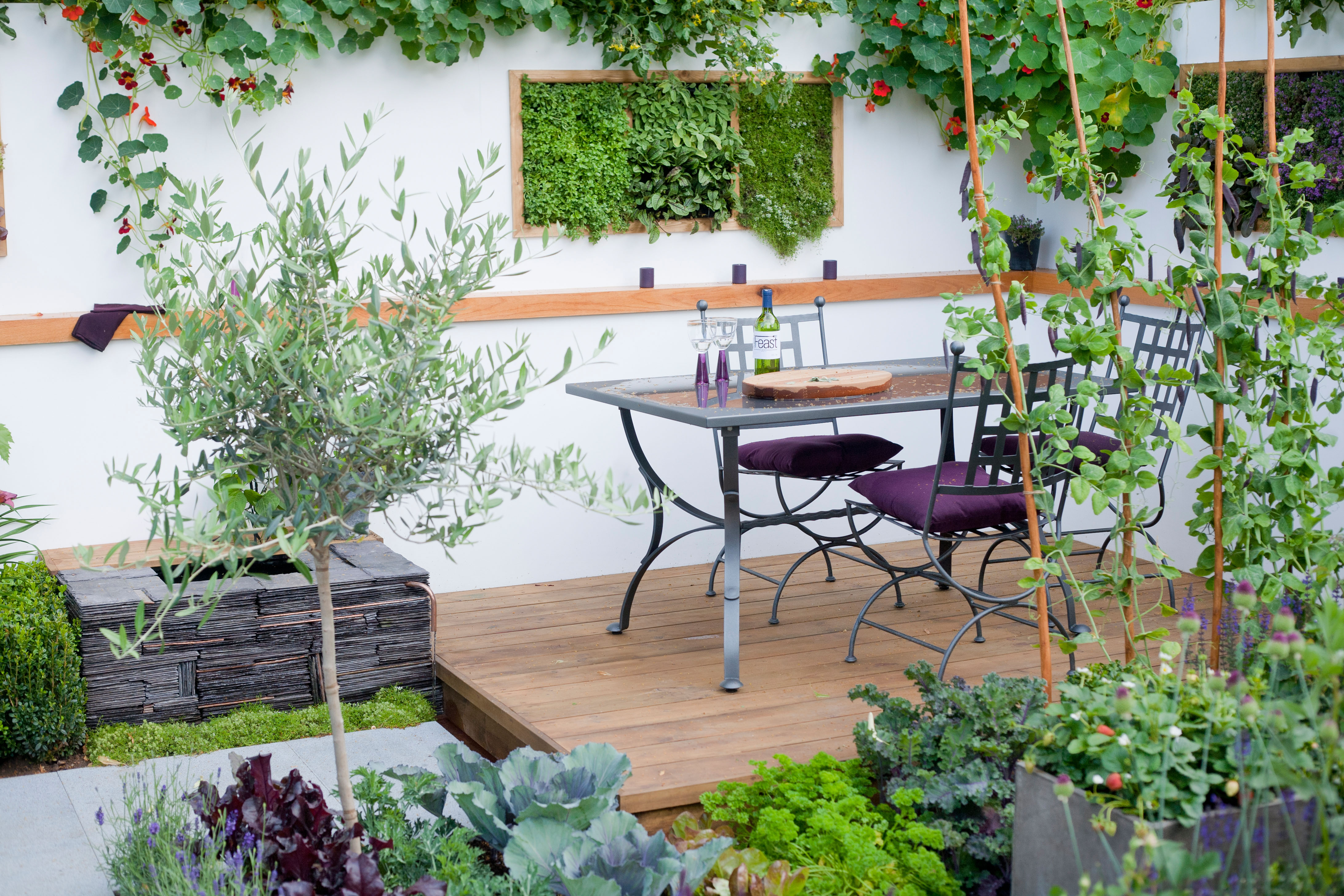
There's an age-old debate on how often you should water your backyard. While the answer will differ depending on which plants you have, and whether we're talking container gardening or actual flower beds, a gardener's best-kept trick is to always water deeply and less frequently.
'Watering outdoor plants with temperate water is a good practice, but it's not always convenient,' says Reese. 'One of the main challenges is trying to bring the water to the ideal temperature, especially if you live in the countryside. In such cases, it's essential to water your plants gently and avoid using water that is too cold.
At times like this, he recommends giving your plants a big drink every once in a while, rather than frequently and shallowly. 'This allows the water to penetrate deep into the soil and encourages the roots to grow deeper,' he says. It will also make them more resilient to drought, too.
2. Water in the morning or evening
Although the thought may never have crossed your mind, early morning or evening is actually the best time to water your garden. Our busy schedules can often get in the way of a routine watering regime, but it's best to water at day-break or dusk if you want the healthiest plants, especially in summer.
'This is because it reduces water loss due to evaporation,' says Reese. 'Pay attention to the soil's moisture level and adjust your watering schedule if needed since overwatering plants can be just as damaging as underwatering.'
Who said hose reels can't be pretty? This 125 foot aluminum reel mounts to the side of your house to keep your hose in order so it's no longer strewn across the patio. The installation is super easy, and the intricate design will give your backyard a timeless vintage feel.
3. Use a watering can
Let's face it, hose pipes can sometimes be a bit of a gimmick. The many different settings that mimic different rain patterns and claim to improve irrigation aren't actually all they're cracked up to be. For a better chance of getting the temperature right and giving your plants a more gentle water, use an old-school watering can instead.
'Use a watering can or drip irrigation system to water the base of the plant rather than spraying water over the leaves and surrounding soil,' says Reese. This will prevent any damage to the stem of your plant and avoid disrupting the soil, which can sometimes uproot the plant.
It might seem like a lot of rules to follow just to keep your plants happy, but switching to these simple habits will help your backyard to prosper this season. (Our outdoor spaces deserve as much attention as our interiors, after all.) Combine them with other ways to care for plants during summer and you'll have an outdoor oasis that neighbors will envy.

Lilith Hudson is a freelance writer and regular contributor to Livingetc. She holds an MA in Magazine Journalism from City, University of London, and has written for various titles including Homes & Gardens, House Beautiful, Advnture, the Saturday Times Magazine, Evening Standard, DJ Mag, Metro, and The Simple Things Magazine.
Prior to going freelance, Lilith was the News and Trends Editor at Livingetc. It was a role that helped her develop a keen eye for spotting all the latest micro-trends, interior hacks, and viral decor must-haves you need in your home. With a constant ear to the ground on the design scene, she's ahead of the curve when it comes to the latest color that's sweeping interiors or the hot new style to decorate our homes.
